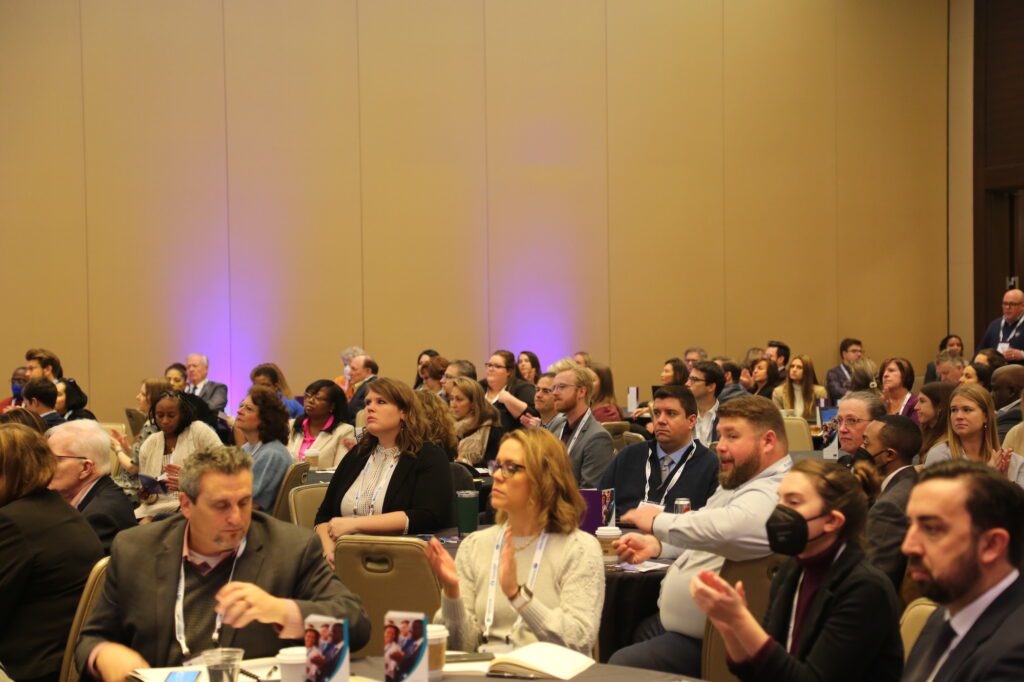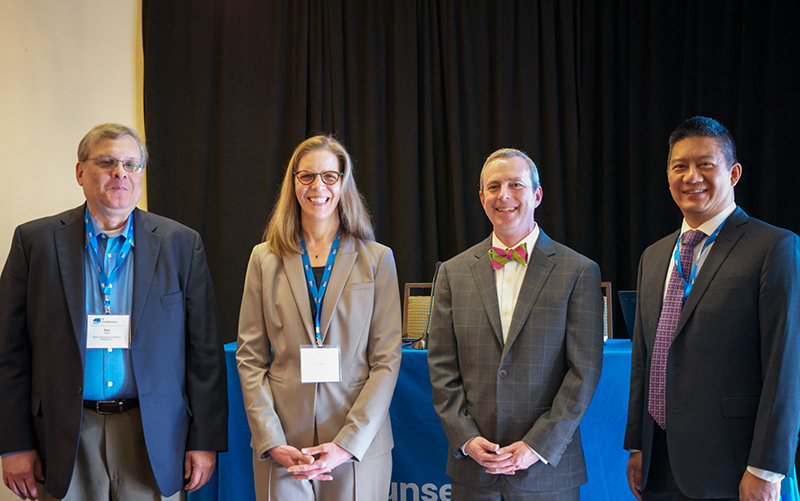We know industry partnerships with patient advocacy organizations are essential to drug R&D—but the industry needs to think beyond traditional partnerships towards engaging with communities and building trust, agreed speakers on a panel at the Biotechnology Innovation Organization (BIO) Patient and Health Advocacy Summit.
Moderated by Mary Stutts, Global Chief Inclusion and Health Equity Officer at Real Chemistry, the wide-ranging and insightful conversation covered the need to center the patient and practical ways to build trust.
‘Without trust, change cannot occur.’
We have to meet patients where they are, said Dr. Lisa Fitzpatrick, Founder and CEO of Grapevine Health, which creates relatable health content to build health literacy and trust among patients and communities. “There’s really no substitute for it.”
Everyone in the industry often takes a “shortcut” and relies “on proxies for the patient or community voice…the folks who will pick up the phone when you call,” continued Dr. Fitzpatrick. “We need those voices, but we also need to hear directly from people.”
“What if the health system—all of you, all of us—found ways to be in the places where people are paying attention? Because we’re not there,” she said later.
This can help build trust, echoing a theme across several sessions, which panelists agreed is key to engaging with patients.
“Change happens at the pace and the level of trust,” said Tonya Winders, CEO of the Allergy & Asthma Network. “Without trust, change cannot occur.”
“Everything you do is an opportunity to build trust, but it’s also an opportunity to lose that trust,” noted Jason Resendez, President and CEO of the National Alliance for Caregiving, later in the conversation.
Here’s how you can start to build it: “Trust is how you design a study protocol, how you translate or don’t translate a flier, how to go about translating that flier,” he said.
It’s also “how we acknowledge historical injustices, also acknowledge they’re not just historic. They’re happening every day,” he continued.
‘You can’t just show up when you need to conclude your clinical trial.’
Community partners “are looking for long-term relationships. You cannot just show up when you need them and ask them for something and then disappear,” said Stutts. Second, partnerships need “to be mutually reciprocal.”
“It’s about staying in a community,” added Winders, “and also addressing some of the systemic injustices. We can’t really talk about health inequity without also talking about education, economic policy, transportation, housing policy.” This means the industry needs to show up in communities and be part of the conversation about these challenges beyond the immediate focus of the clinical trial.
“Underserved does not be uninsured, uneducated, unemployed—we bring our biases and overlay things on people,” agreed Stutts. “The bias and racism exist across the entire health ecosystem, and we are leaving billions of dollars on the table because of our own biases.”
We need to emphasize “this notion that you need to be there, consistently,” agreed Dr. Fitzpatrick. “It’s easy for us to go back to our silos and our organizations if it’s not part of the culture. If you’re not doing this by intention, we’ll still be talking about this 10 years from now, 20 years from now.”
“This is why we have such a difficult time with clinical trial diversity,” she continued. “We have to find a way to be intentional about building these relationships.”
“Which is why you can’t just show up when you need to conclude your clinical trial,” remarked Stutts.
We also have to learn “how to relate to people, how not to shame them,” added Dr. Fitzpatrick. “We’ll never have enough Black doctors so that every Black person can see a Black doctor, or every Hispanic person can see a Hispanic doctor, so we have to work with what we have,” and hold the industry accountable.
But before you can build trust, you have to bring people to the table.
“How do we bring people to the table?” asked Dr. Fitzpatrick. “Just ask people! And they might say yes.”




